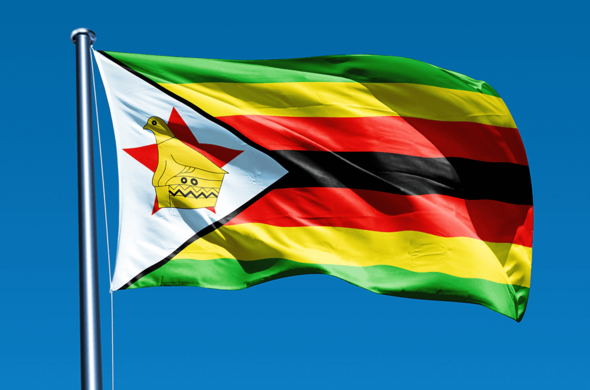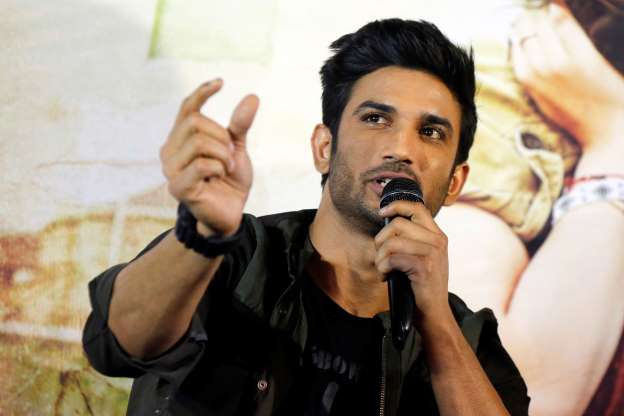Adamu Mohammed, 42, a patient of cancer, is appealing for help as the deadly disease erodes his facial muscles.A few years ago, all the anatomical features of his face were in place and intact.
When I made a follow-up visit to him 10 days ago (3 years after I first met him) in Paiko, where he is bedridden in a small, cramped, poorly lit single room, he had undergone a disturbing and grotesque metamorphosis.
His face was gone. The forehead no longer exist. So are the temples and the nasal bridge. The cancer, which has devoured the other features, is expanding its frontiers, eating away at the cheeks. Mr. Mohammed can no longer smile. Soon the jawbones will be exposed, raw.
The central part of his face, the region between the frontal bone and the nose, is now a vacuum, almost the size of an adult fist. The eyes are dead, the sockets gone, but the globules are still in place tethered to the back of the skull by a string of muscle. Grey-coloured pus dripped from the centre of what used to be the forehead onto the top of his upper lip, dribbling down. Surprisingly, Mr. Mohammed still speaks, his memory still rich and sharp.
I have never really forgotten about him; although I had never been able to do a follow-up story. The picture of Mr. Mohammed, with spreading cancerous wound on his forehead, had continued to haunt my thoughts, from time to time. I told him I wanted to do another story on him, to publish his plight as I had done before, and wait on God for luck.
Initially, the cancer wound was as small as a child’s palm on his forehead. Then Indian doctors at Primus International Specialty Hospital in Abuja warned that unless he reported immediately at their parent hospital in India with about 19,000 dollars (about N3.2m) for surgical excision of the affected portion of the skull, the disease would degenerate and engulf all of the face. Well, Adamu had not found the money, even from the state government or his union, the Nigeria Union of Teachers, and the cancer continued its ravages down the nose.
By 2013, the cost for the surgical excision had been reviewed upward by another Indian hospital, Dharamshila Hospital and Research Center (DHRC), which now required the sum of N5m for craniofacial surgery, skin grafting, and medication.
Mr. Adamu, who couldn’t find N3.2m, was now required to cough out more. But serendipity came his way: a private citizen (who did not want his name in print) heard the story and decided to make Mr. Mohammed’s India medical intervention a reality. He spent one month at DHRC, and returned worse off, as some parts of his body were dotted with stitches done after grafting.
The current medical challenge afflicting Mr. Mohammed, a teacher with Dobwa Primary School, in Paikoro Local Government Area of Niger State, began in 2008. It all began as a boil in his forehead. While it lasted, the boil caused him extreme unremitting fever, in spite of the analgesics he took.
Then the boil ripened, and he punctured it. Stale putrid blood flowed from its bowels, and he felt great relief. The constant heat in the body calmed, but the wound did not heal. He reported his condition at ABU Teaching Hospital, Zaria, where medical care led to healing, albeit temporal. While he was basking in his new-found relief, another boil grew from the scab of the first. He went back to ABU Teaching Hospital, where he underwent another treatment, but, in spite of a barrage of treatment strategies, this new outgrowth would not retreat.
His condition worsened during one of his hospital calls to Zaria to honour appointment with some specialists. Mr. Mohammed was involved in an auto accident in which he broke his thighbone. Already made poor by the expensive cancer treatments, he could do nothing about his broken femur. After all, his unhealing forehead was still his most important and deadliest challenge yet.
Then he heard of Primus International Specialty Hospital, Abuja, which had been recommended strongly by many, and the hospital, after conducting its own investigation, recommended a trip to their mother hospital in India. The hospital in India conservatively estimated that he would need about N3.2m for treatment.
The India medical intervention ended in a nightmare. According to DHRC medical report, on November 24, 2013 Mr. Mohammed underwent craniofacial resection, a surgical operation to remove the frontal part of his skull and the middle of his face, terminating at the nasal bridge. Then the doctors replaced the excised region with a fabricated artificial implant, a plastic construct, which is the replica of the structure that was removed. This was then fastened in place with micro metal screws.
The surgical operation also included two other procedures: Dissecting Adamu’s neck to remove tissues already affected by cancer and performing skin graft (i.e. harvesting healthy skin tissues taken from buttocks, hands, thighs, etc to cover the implant), in the hope that the skin grafts (also called flab) would become healthy skin cover over the artificial implant.
However, things did not go as planned. Four days after the surgeries, the patient reported with what the doctors called ‘duskiness of flap,’ meaning that the new skin cover showed a discolouration indicating that it had either been infected or that blood was not circulating in the flab area. In the extreme, it meant that the skin tissues were dead.
To correct the situation, the patient was wheeled back to the operating theatre on November 29, 2013 for removal of the affected, non-living tissues and regrafting the area, which meant harvesting more flesh from other parts of the body for replacement.
According to his medical record, the patient was stable post-operatively again for four days; then there was a clot in his venous system. The veins had become congested and dark blood “started covering on scraping”.
For the third time, the patient was readmitted to fix the silting of the veins, do vein grafting, and perform tracheostomy, a medical bypass operation to create a hole in his windpipe and insert a tube so that he can be fed through the artificial orifice. That was on December 5, 2013. The “procedure was performed successfully and patient was monitored continuously in ICU,” said the hospital account, adding that “on the morning of December 6, 2013, flap again started swelling and become congested. Vein grafting was done from branch of left radial vein. Procedure was done successfully, (but) flap remain congest(ed) and swelled.”
Finally, sadly though, the hospital proclaimed: “Patient is in a state of severe infection and currently undergoing aggressive dressing in ICU. He is being advised (to undergo) reconstructive surgery once infection settles down. Patient and his attendant refused to undergo any further investigations, definitive treatment and surgery.”
What this meant, if the patient and his attendant had agreed, was more money for surgery, hospitalisation, and feeding, more debridement, more skin and vein harvest, and more deconstruction and reconstruction of his craniofacial region.
However, with no more funds to foot “further investigations, definitive treatment and surgery,” Mr. Mohammed left DHRC, India with heavy bandaged metal and plastic face and a rash of sore wounds, his hope of overcoming the malignant cancer in tatters.
Living with his mother 65-year-old mother, wife and four children in Paiko town, his heavily bandaged and disfigured face was about to undergo dressing for the day. For over a year now, this cleanup and eventual dressing had been done by Ibrahim Adamu, a teacher at Abubakar Dada Senior Secondary School, Paiko.
When one friend after another turned his back at the cancer patient, Mr. Adamu stayed, the last man standing, in a true exercise of unbreakable friendship. Even the nurse, who was engaged for a fee, ran away.
We asked Mr. Adamu why he declined to abandon his friend when it was fashionable among his friends, and he said, “If I run away when everybody else was running away, who is going to look after him? Although he is older than me, we have been friends for a long time. When others left, it wouldn’t be a good thing if I leave too.”
Without doubt, Mr. Mohammed was moved with these words, and if his eyes were still alive, he would have dropped some tears. But his voice was teary when he declared that “Ibrahim is my best friend. Many of my friends no longer come to see me, but Ibrahim is here everyday. I don’t know how to describe him. In fact, he is more than a friend.”
I told Mr. Adamu we wanted to take the picture of Mr. Mohammed’s face, without the bandage, but he warned us that the reality underneath the dressing could be disturbing.
He asked us to leave the room, while he undressed the face and to return when he was done. Later at his command, we re-entered the room, but he warned again: “What you are about to see is distressing. Viewer discretion is advised.”
Mr. Mohammed’s face was like nothing I have seen all my life; the centre was empty, inhabited only by two lifeless eyeballs. You could see the interior wall of the skull. The inside is messy with blood and pus, which Mr. Adamu would later clean up.
The patient is still alive, his face decomposing. He still eats normally, but when he returned from India freshly, he was fed through the innovation in his windpipe. The whole scene smacked of unreality. Mr. Mohammed looked like a creature that could only have come from the aberrant mind of Dr Frankeistein.
“You see, when the dressing is in place, he looks human. Without it, he is a disturbing picture,” Mr. Adamu, a graduate of English from Ibrahim Badamasi Babangida University, said.
Mr. Mohammed gave his own assessment of the India medical intervention. “There was surgical failure,” he said. “The skin grafts didn’t work. When he returned, there were wounds everywhere. It was difficult to hold him; flesh had been taken from his hands, his buttocks, neck, all the parts of the body were sore. They (i.e.the doctors) should not have removed portions of his skull.”
Some of the constructions in his face are coming to ruins. The metal plate covering the anterior part of the brain is dismantling gradually, two of the petite nuts and bolts that hold it in place are gone. The facial implant fell off over a year ago, and some medical experts said he would die when that happens.
Well, Mr. Mohammed is still alive. Yes, he is.
A lot can be done for Mr. Mohammed, although Dr Hassan Mohammed Jimada, proprietor of Hamdala Clinic, in Minna, described him as “wasted”.“He has very strong spirit,” Mr. Adamu said. “He is always joking. In fact, he is the one who is encouraging us to do this. He keeps our spirit high as if some solution will be coming.”
He said he could be given palliative treatment to ease his current pain. Furthermore, he needs a nurse to dress his facial wound to avoid the risk of infection.
That means he needs money to be interned in a hospital where he can also receive radiotherapy and chemotherapy to avoid metastasis, that is the spread of cancer to other healthy parts.
All these (i, e. the cost of hospitalisation and risk control) are expensive and needless to say unaffordable by the patient, who now prays for Mother Luck to smile at him again.
Dr Jimada says there is urgent need to transfer Mr. Mohammed to a hospital where he can get professional care and palliative management.
Mr. Mohammed is appealing to well-meaning Nigerians to come to his aid.
Ndama Abubakar is Managing Director, Newsline Newspapers, Minna.






